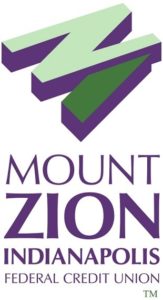Mt. Zion Indianapolis Federal Credit Union: A Holistic View of the Customer
Mount Zion Indianapolis Federal Credit Union
Indianapolis, IN
 In 1963, when the Mt. Zion Baptist Church in Indianapolis, Indiana, sought a charter to start a credit union, the progressive Reverend R. T. Andrews’s motto was to serve the community from cradle to grave.
In 1963, when the Mt. Zion Baptist Church in Indianapolis, Indiana, sought a charter to start a credit union, the progressive Reverend R. T. Andrews’s motto was to serve the community from cradle to grave.
At the time, Mt. Zion was one of the largest minority churches in the city, but members were experiencing redlining due to race. Therefore, the establishment of the Mt. Zion Indianapolis Federal Credit Union provided its members—of all income levels—with the opportunity to accumulate savings, to use their own money for life decisions, and to develop credit.
Doris Doggett, who is the chair of the Board of Directors, says that the Mt. Zion Credit Union continues the work of shepherding people through their path of economic success by offering an array of financial services, including loans and financial literacy education; as well, they have recently partnered with Mass Mutual to provide investment and insurance opportunities. The membership of the credit union is still largely minority; however, the membership is much smaller. The pandemic thwarted expansion plans. Yet, the credit union still stands as the last resort in financial services for the community, which has seen several other banks move out of the area.
During the pandemic, Mt. Zion Credit Union received a grant from Inclusiv that protected its assets from loan losses due to reductions in wages, reductions in hours, and unemployment of members. The funds helped the credit union and the members to stay alive, Doggett says.
Also, the credit union acted as a Paycheck Protection Program (PPP) lender. Doggett had a contact at the Small Business Administration that she was able to reach out to, thereby keeping on top of the application process. Mt. Zion Credit Union worked hard to learn the SBA’s processes and to master this unfamiliar platform. The restricted time granted by the SBA to CDFIs and MDIs to process applications was invaluable to small organizations, such as the credit union.
During the first round, the credit union made seven loans of almost $100,000, ranging from just under $1,000 to $32,000, and all to Black-owned businesses. They navigated these small businesses through the steps—some of them do not have accounting departments, so the credit union staff had to spend additional time verifying and reviewing the applications. When seen with the fact that there are only seven members of the Board and one employee—the manager—at Mt. Zion Credit Union, that volume of work is a sheer undertaking. The credit union is participating in the second round of PPP lending.
Kurt Moore has been a credit union member for six years. His business, K-Love’s Auto Detailing, serves about forty auto dealerships in the Indianapolis area. Mt. Zion Credit Union helped him not only with the down payment on the purchase of K-Love’s building but also proved to be instrumental for Mr. Moore during the pandemic.
When COVID-19 devastated small businesses and livelihoods in the country, Mr. Moore needed funds to keep his business running and his employees paid. When his PPP application was in limbo at a larger bank, he sought help from the Mt. Zion Credit Union and received much needed funds within days.
“Mt. Zion Credit Union has been a blessing,” he says. “They’ve been there for me as a small credit union, and their services are equal to, if not better, than big banks.” As an ex-felon and now a successful small business owner, Kurt hires local young people and people who were formerly incarcerated. K-Love’s Auto Detailing not only helped his regular employees get back to work but also provided jobs for other people who may not be able to find work otherwise. With the PPP loan, he was able to maintain operations and to pay his employees. “It’s a loop,” Kurt says. “We need credit unions to serve our community as a whole. They help me, I help another, that person helps one more person(s). We’re all uplifted.”
This is the strength of Mt. Zion Credit Union.
“Credit unions will look at you as the whole person and consider your situation,” Doggett says. One of the biggest challenges she pointed out is that, when some of their members get into financial difficulties, some do not want to share that information with the credit union. However, because the credit union is so present in the community, often the credit union is able to reach out to a family member who is then able to reach out to the member, to bring that member to the table to talk. “People are naturally averse to a bad situation and don’t know that help is there. But once the member gets a chance to talk to someone personally, they understand. They didn't know help was available. Now they know: credit unions are able to help."

